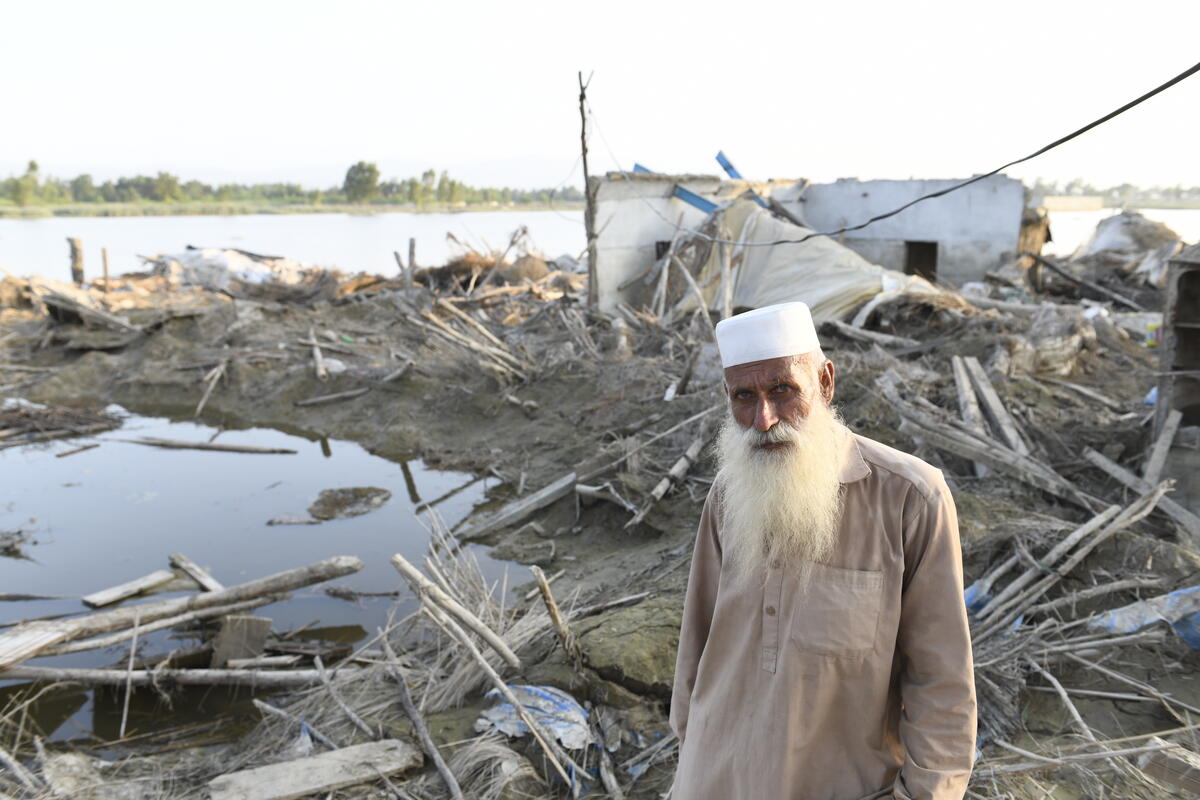Newly displaced Pakistani civilians report grim conditions in Swat Valley
Newly displaced Pakistani civilians report grim conditions in Swat Valley

CHARSADDA, Pakistan. June 2 (UNHCR) - For nearly a month, they've sheltered in basements eking out a living on spinach and naan bread. They have watched as shells destroyed their homes or those of their neighbours.
But lately, even the most stubborn residents of north-west Pakistan's Swat Valley have felt compelled to leave. Over the weekend thousands took advantage of the lifting of a government curfew on the region to flee to safer areas in Mardan, Swabi and Charsadda districts of Pakistan's North West Frontier Province (NWFP).
"We could hear the shelling and bombing every day, we could see the helicopters," recalls Ajij, 35, a farmer from a village near Mingora, the main town in Swat district, who arrived Monday with his wife and five children at Sugar Mill, one of two new camps set up by UNHCR over the weekend. His house was completely destroyed a week ago, he says, though nobody was in it at the time. "We will lose our crops, it is inevitable at this point," says Ajij.
Many of the newly displaced report severe shortages of food and medicine in Swat. Bakhatali, aged 40, also arrived at Sugar Mill camp this week. He, his wife and six children hid in their basement in Mingora for a month before finally being forced to leave. "We were afraid of the bombing all this time," he said. "The children could not sleep. I had to put cotton wool in their ears."
Mohammed, 40, a father of two young children who arrived at Sugar Mill camp this week says he and his family were afraid to leave home because of the bombing. "But as soon as we heard that the curfew was lifted, we walked through the mountains to Batkhila" and from there caught a bus to Mardan.
Hundreds of thousands of people have now fled the fighting in the Swat Valley, Lower Dir and Buner districts in the past month. To respond to the newest influx, UNHCR, together with its implementing partners and the authorities of the NWFP, set up two new camps in Charsadda and Peshawar districts.
Sugar Mill camp, in Charsadda, received 400 families, or 2,400 individuals, on Monday and another 175 families, or 1,050 individuals, on Tuesday. Larama camp, located in the suburbs of Peshawar town, received 98 people Tuesday.
The pause in fighting this weekend was the first opportunity in some time for people trapped in those areas to escape to safer zones. Many of the families reported they were transported out of Swat Valley by government-arranged trucks which took them to Yar Hussain camp in Swabi or Sugar Mill in Charsadda.
Others said they had walked some of the way before taking buses to reach safer areas. Some were able to rent private accommodation and others found a place to stay with host families or in schools.
In the new camp in Charsadda - which is named for a sugar mill that used to operate there until 1996 - UNHCR has provided relief kit items such as plastic sheeting, jerry cans and blankets for a total of 850 families. The governmental District Coordination Officer is providing tents.
It is also working with the local non-governmental organization IDRAK to hire equipment and a labour force to clear and level the ground. UNICEF is installing latrines with its partner Humanitarian Resources Development Society. Basic health facilities should be in place in the next few days.
UNHCR is installing electricity in the new camp, building shaded structures above individual tents or in communal areas and giving families bricks to build fire places to cook their food. In Jalala camp in Mardan district, meanwhile, UNHCR partner IDRAK erected 120 green nets above family tents in order to better protect them from the summer heat. Some 900 similar structures will be completed in coming days.
For newly displaced people like Ajij, accustomed to the cooler temperatures in the Swat Valley, the temperatures are just one of many difficulties they have to face. "We have small children. It is too hard for them," he conceded of the heat in the camps. "I want to go back."
By Helene Caux in Charsadda, Pakistan








